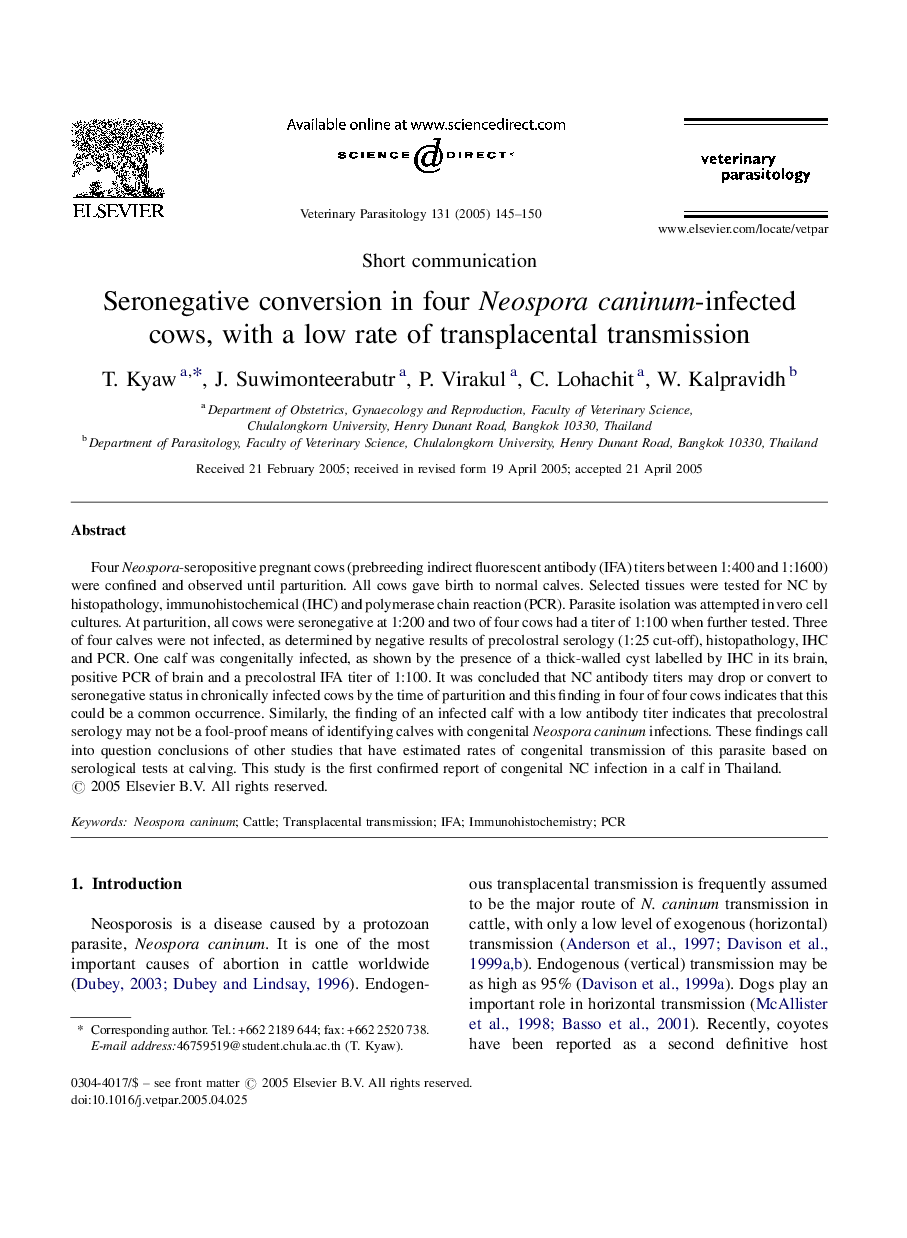| Article ID | Journal | Published Year | Pages | File Type |
|---|---|---|---|---|
| 8990958 | Veterinary Parasitology | 2005 | 6 Pages |
Abstract
Four Neospora-seropositive pregnant cows (prebreeding indirect fluorescent antibody (IFA) titers between 1:400 and 1:1600) were confined and observed until parturition. All cows gave birth to normal calves. Selected tissues were tested for NC by histopathology, immunohistochemical (IHC) and polymerase chain reaction (PCR). Parasite isolation was attempted in vero cell cultures. At parturition, all cows were seronegative at 1:200 and two of four cows had a titer of 1:100 when further tested. Three of four calves were not infected, as determined by negative results of precolostral serology (1:25 cut-off), histopathology, IHC and PCR. One calf was congenitally infected, as shown by the presence of a thick-walled cyst labelled by IHC in its brain, positive PCR of brain and a precolostral IFA titer of 1:100. It was concluded that NC antibody titers may drop or convert to seronegative status in chronically infected cows by the time of parturition and this finding in four of four cows indicates that this could be a common occurrence. Similarly, the finding of an infected calf with a low antibody titer indicates that precolostral serology may not be a fool-proof means of identifying calves with congenital Neospora caninum infections. These findings call into question conclusions of other studies that have estimated rates of congenital transmission of this parasite based on serological tests at calving. This study is the first confirmed report of congenital NC infection in a calf in Thailand.
Related Topics
Life Sciences
Agricultural and Biological Sciences
Animal Science and Zoology
Authors
T. Kyaw, J. Suwimonteerabutr, P. Virakul, C. Lohachit, W. Kalpravidh,
